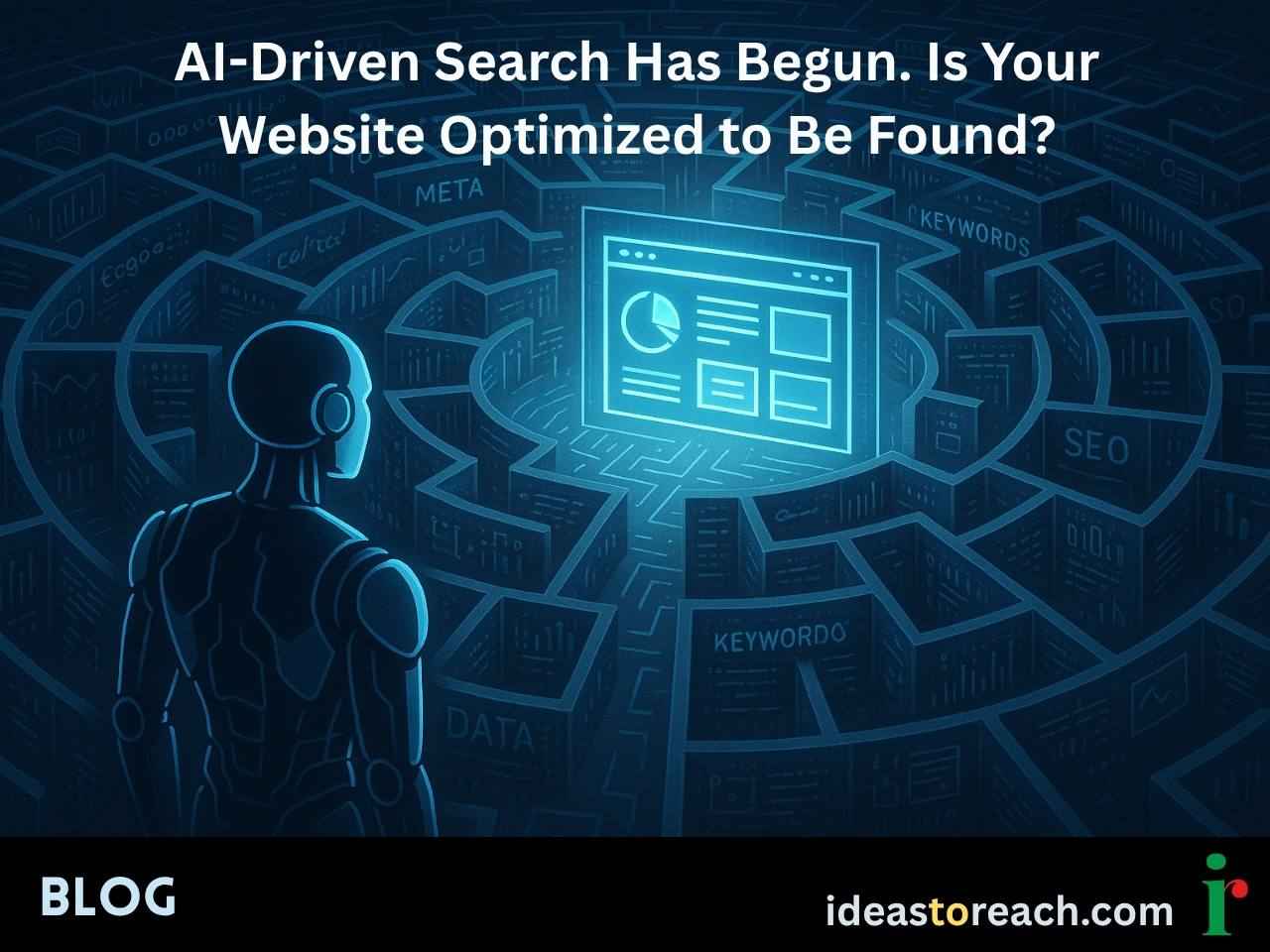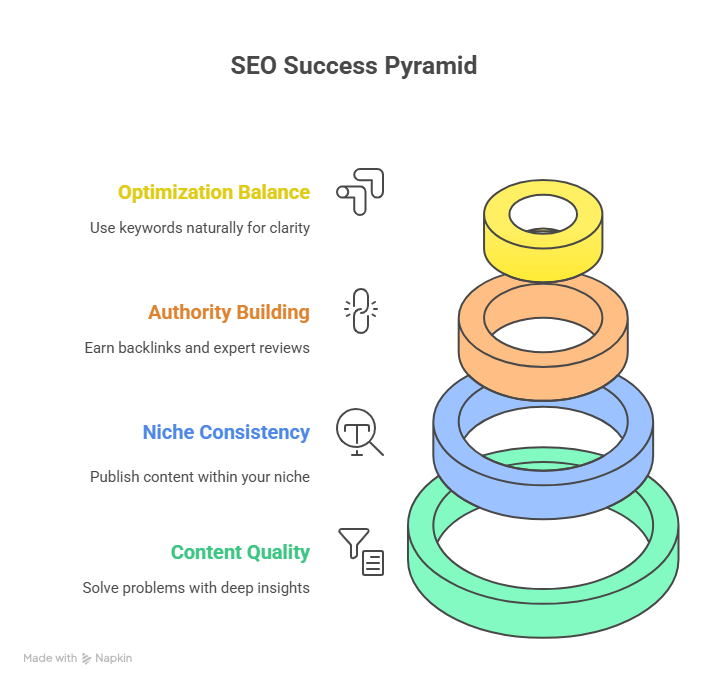
With Google’s new AI Overviews and machine-generated search results now appearing in more queries, many business owners, marketers, and even SEO professionals are asking the same thing:
Is SEO still relevant in the age of Google AI?
The short answer: Yes. SEO is not just alive, it’s evolving.
In this blog, let’s clear the confusion around AI vs SEO and walk you through what’s really changing, what’s not, and how to adapt your digital strategy.
When Google introduced AI Mode and Search Generative Experience (SGE), it started answering search queries right at the top of the page. These AI-generated responses summarize content from multiple websites. Users often get the full answer without clicking anything.
This shift raised serious concerns:
These are fair questions. But here’s what many miss:
Google’s AI does not invent information. It collects it from websites like yours.
And not just any websites. It selects content that is helpful, trustworthy, and well-structured.
If your site isn’t part of that content ecosystem, your visibility drops, both in search and AI responses.
While John Mueller did not comment specifically on Google’s AI Mode, he recently addressed a broader concern: will generative AI make SEO irrelevant?
In a discussion with Martin Splitt, Mueller replied:
His message was clear. Websites are still the foundation of online visibility. Whether users find you through Google Search, an AI assistant, or a chatbot, they all rely on the content your site provides.
So while the format of search results is evolving, the need for SEO and strong website strategy remains critical.
It is not just about helping AI find your content. SEO plays a much bigger role in shaping how your brand is seen, how trusted your content becomes, and how users convert after discovery.
Here is what SEO continues to do for your business today:
AI answers do not just summarize facts. They influence how users perceive your business.
SEO helps you:
Whether it is an AI overview, a voice result, or a featured snippet, SEO gives you more control over how your brand is represented.
Google and its AI systems prioritize trustworthy content. SEO helps you build those trust signals through:
These signals influence not just your rankings, but also your chances of being selected in AI-powered responses. Building topical authority and earning backlinks not only improves your visibility, it also strengthens your overall Domain Authority — your digital reputation score in the eyes of AI systems.
Search today is no longer just a list of blue links. SEO helps your business appear across:
Being visible where users are searching, not just how they used to search, is a key part of staying relevant.
Even if AI mentions your business, people still need to visit your site to take the next step. That could be:
SEO ensures your site is not only visible but also fast, mobile-friendly, and designed to turn visits into results.
Knowing that SEO still matters is only the beginning. The next step is evolving your approach to match the way AI-driven search works.
Here is how SEO is changing and what you should do about it:
Google is now better at understanding what users mean, not just what they type. Your content needs to match that intent clearly.
Understanding how search engines interpret user intent through natural language is key, here’s why NLP plays a big role in modern SEO.
Ask yourself:
Write content that answers these needs directly.
Publishing random blogs across many subjects does not help anymore. Instead, build deep content clusters around your key services or expertise.
The more focused and complete your coverage, the more Google sees your site as an expert source.
AI-powered systems prefer content that is cleanly organized and semantically clear.
Make sure to:
This gives your site the best chance of being picked up in rich results or summaries.
Want to be cited in AI summaries? Learn how to structure content specifically for generative search in our guide on optimizing content for AI summaries.
Google rewards websites that offer a smooth, fast, and accessible experience. Focus on:
Great UX supports SEO, and helps convert your visitors into leads or customers.
If your SEO strategy still relies on shortcuts, it is time to upgrade. These outdated tactics are no longer effective:
Google’s AI is getting smarter. Only content that is useful, structured, and relevant will perform well going forward.
Want to future-proof your SEO? Focus on these four essentials that stack up to lasting results.
The SEO Success Pyramid below shows what a sustainable, AI-ready SEO strategy looks like, starting from a strong content foundation to smart optimization at the top.

The SEO Success Pyramid: Your roadmap to ranking in the AI era
Yes. SEO helps your brand appear across Google Search, AI summaries, and voice assistants. It is still one of the most powerful digital skills.
AI can help with drafts or outlines, but it cannot replace your real expertise, experiences, or insights. That is what Google rewards.
SEO helps by making content clear, structured, and trustworthy. Pages with strong intent alignment, clean headings, internal links, and authority signals are easier for Google’s AI to understand and summarize.
Yes. AI-powered search favors relevance and clarity over brand size. Smaller sites that deeply cover a niche and demonstrate real expertise can still be selected in AI summaries.
Backlinks act as trust signals that help Google assess credibility. Content referenced by authoritative websites is more likely to be trusted and included in AI-generated responses.
AI might be changing how people search, but it hasn’t changed the core truth:
Businesses still need to be found, trusted, and chosen.
That’s what SEO does, and that’s why it still matters.
If you’re focused on shortcuts, you’ll get left behind. But if you’re building helpful content, earning trust, and adapting to how search actually works today, you’re not just surviving, you’re leading.
So no, Google’s AI isn’t the end of SEO. It’s the wake-up call to start doing it better.
The only question is - are you keeping up?